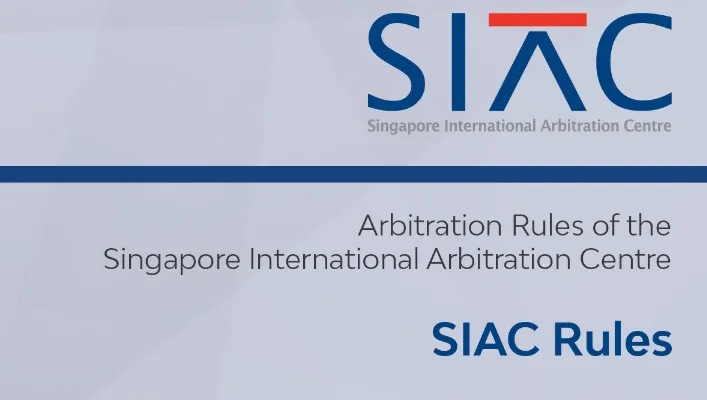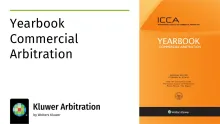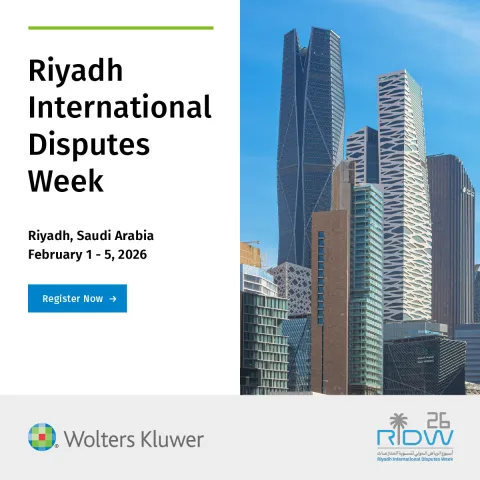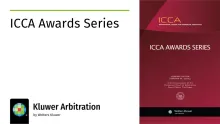Balancing Natural Justice and Urgency in Ex Parte Emergency Interim Relief: The SIAC Rules 2025 as a Blueprint?
September 23, 2025
Ex parte interim relief, which is temporary relief granted to a party without hearing the other(s), remains contentious in international arbitration. While recognized in most jurisdictions in domestic court proceedings, as well as in Articles 17B-17D of the UNCITRAL Model Law on International Commercial Arbitration (“Model Law”), its compatibility with natural justice is often debated. But does ex parte interim relief really violate natural justice? Especially in emergency arbitrations where speed is of utmost importance, might this mechanism, if carefully regulated, enhance rather than undermine fairness? In this regard, the Singapore International Arbitration Centre (“SIAC”) offers a forward-looking stance. In force since 1 January 2025, the SIAC Rules 2025 (Schedule 1, paragraphs 25 to 34) allow parties to request protective preliminary orders (“PPOs”) from an emergency arbitrator on an ex parte basis. Readers may refer to our earlier posts for a detailed analysis of PPOs.
This post first examines whether ex parte interim relief truly violates natural justice and argues that, with proper safeguards, it need not. It then turns to the PPO provisions in the SIAC Rules 2025 to explore how arbitral institutions can provide for ex parte relief that aligns with natural justice. Appropriately implemented, the introduction of emergency ex parte relief is important to ensure arbitration can operate as a “one-stop shop” for dispute resolution.
Ex Parte Interim Relief and Natural Justice: A Contradiction?
In Soh Beng Tee & Co Pte Ltd v Fairmount Development Pte Ltd [2007] SGCA 28 at [43], the Singapore Court of Appeal endorsed the concept of natural justice as resting on two core principles: audi alteram partem (let the other side be heard) and nemo judex in causa sua (no one should be a judge in their own cause). This is also reflected in Article 18 of the Model Law which provides that “the parties shall be treated with equality and each shall be given a full opportunity to present their case”.
At first glance, ex parte interim relief appears to conflict with the audi alteram partem (let the other side be heard) rule since the respondent learns of the measure only after it has been granted, seemingly denying them the chance to respond. It may be this perceived conflict that has led some arbitral institutions to avoid express provision for ex parte relief in emergency arbitrations. For example, under Article 2(3) of the Emergency Arbitrator Rules contained in Appendix V of the 2021 International Chamber of Commerce (“ICC”) Arbitration Rules, the ICC Secretariat shall notify the parties once the emergency arbitrator has been appointed, thereby effectively ruling out ex parte orders. Nevertheless, this stems from a choice in institutional rule design requiring prior notice to the opposing party as a precondition for granting interim relief. It does not stem from any inherent incompatibility between ex parte interim relief and natural justice.
If institutional rules permit ex parte interim relief, provided that the other party is notified immediately afterwards and given a prompt opportunity to be heard, these measures do not necessarily breach natural justice. While the respondent is not heard before the relief is granted, this does not equate to a denial of the right to be heard. The only thing that changes is when the respondent is heard, not whether it is heard at all. Crucially, it remains open to the arbitrator to modify or revoke the order once both parties have presented their cases and had a fair opportunity to be heard. Each party still gets their say, just not simultaneously. In the context of emergency arbitrations in particular, emergency relief is often sought in situations of extreme urgency where advance notice to the respondent could frustrate the very purpose of the relief sought. Therefore, a carefully regulated ex parte mechanism may protect, rather than undermine, the interests of justice and fairness.
Implementing Ex Parte Interim Relief in Arbitral Rules: The SIAC Rules 2025 as a Model
In the author’s view, ex parte interim relief does not have to come at the cost of fairness so long as it is backed by solid procedural safeguards. But what exactly should those safeguards look like? That’s where the SIAC Rules 2025 come in. The key features of their approach to ex parte interim relief are outlined below.
An Opt-Out Provision
Expressed through the phrase “unless otherwise agreed by the parties”, the 2025 SIAC Rules include an opt-out clause. This allows parties to exclude the application of the PPO mechanism, preserving a measure of party autonomy.
Strict Timelines
The timeline for issuing ex parte interim relief under the SIAC Rules 2025 is tight and efficient. If the President of the SIAC Court of Arbitration accepts the application, an emergency arbitrator must be appointed within 24 hours and the emergency arbitrator must issue a decision within 24 hours of their appointment. The applicant must notify all parties within 12 hours of the order; otherwise, the PPO expires within three days. In any case, the PPO expires 14 days after its issuance unless renewed. This mechanism ensures prompt notification to the opposing party and imposes automatic expiry as a sanction for an applicant’s non-compliance.
Timely Right to be Heard
The SIAC Rules 2025 require that the respondent be given an opportunity to be heard at “the earliest practicable time” and that any objection to the PPO be promptly decided by the emergency arbitrator. Once both parties have presented their cases, the emergency arbitrator may issue an order or award adopting, modifying, or replacing the initial PPO. PPOs also remain subject to reconsideration by the arbitral tribunal once constituted. Of course, if the relief in the PPO is maintained in the final award, it will be binding and not subject to appeal, review, or other recourse.
Room for Improvement?
While the SIAC Rules 2025 do allow ex parte interim relief without compromising procedural fairness, there is room for improvement.
As outlined above, the PPO provisions in the SIAC Rules 2025 operate on an “opt-out” basis. In practice, parties’ arbitration clauses often contain language to the effect that arbitration shall be conducted under “the SIAC Rules for the time being in force”. Coupled with Rules 1.1 and 1.5 of the SIAC Rules 2025, any arbitration commenced after 1 January 2025 would be subject to the SIAC 2025 Rules, including the PPO regime. This is notwithstanding that the parties, at the time of conclusion of the contract, would not have known that a PPO regime would apply to their arbitration and thus had no opportunity to exclude the PPO regime. This issue is addressed in further detail in this post.
In the author’s view, party autonomy would have been better preserved through transitional provisions for the application of the PPO regime. Specifically, where the arbitration agreement is concluded on or after 1 January 2025, the PPO mechanism should apply by default, subject to an express opt-out by the parties. Conversely, for arbitration agreements concluded before 1 January 2025, the PPO mechanism should apply only if the parties expressly opt in because it would be unjustified to assume that the parties intended to be bound by the PPO regime which was entirely absent from the SIAC Rules 2016. This approach better preserves party autonomy while still encouraging the uptake of the new PPO mechanism.
To further safeguard procedural fairness, the author also suggests that the PPO provisions could incorporate the obligation of “full and frank disclosure” that exists in civil litigation in common law jurisdictions. Under this duty, an applicant must disclose to the court all material facts, including those adverse to its own position. As illustrated in General Dynamics United Kingdom Ltd v State of Libya [2022] EWHC 501 (Comm) at [23]-[26], this obligation is considered the necessary corollary of the court’s departure from the ordinary position of hearing both parties before making a decision, thereby safeguarding the integrity of the judicial process. While not firmly established in civil law jurisdictions, adoption of a duty of full and frank disclosure in international arbitration—where parties from both traditions frequently converge—should be welcomed. It would strengthen fairness and assist arbitrators in receiving a more comprehensive view in ex parte applications, at a stage where the applicant is the sole source of information. In the context of ex parte applications for interim relief in emergency arbitrations, the duty should arise upon the filing of the application and remain in effect until the opposing party has had an opportunity to respond.
Conclusion
Ex parte interim relief has long stood at the crossroads of urgency and procedural fairness. However, when issued under clear institutional rules and supported by safeguards, such relief will enhance—not undermine—natural justice. SIAC’s provisions offer a compelling, albeit imperfect, blueprint for arbitral institutions, showing that even in emergencies, fairness need not be sacrificed. The inclusion of ex parte interim relief procedures also strengthens arbitration’s position as a “one-stop shop” for dispute resolution, allowing it to remain an attractive alternative to litigation.
You may also like










